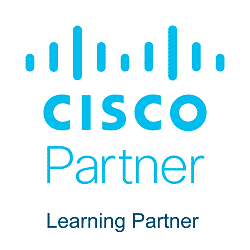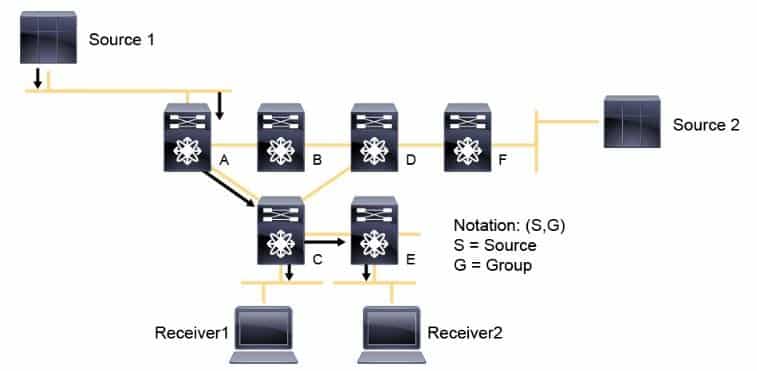DCFNDU course – Understanding Cisco Data Center Foundations

The DCFNDU Understanding Cisco Data Center Foundations Course provides the participant with the skills and knowledge needed to configure key Cisco technologies in the Data Center, including: networking, virtualization, storage area networking, and unified computing. An introduction to Cisco Application Centric Infrastructure (Cisco ACI), automation, and cloud computing will be covered. Hands-on experience with configuring Cisco Nexus Operating System (Cisco NX-OS) and Cisco Unified Computing System (Cisco UCS) features will be provided.
Course Objectives
Below is a summary of the main objectives of the DCFNDU Understanding Cisco Data Center Foundations Course :
- Configuring key Cisco technologies for data centers.
- Introduction to Cisco Application Centric Infrastructure (Cisco ACI).
- In-depth analysis of automation and cloud computing.
- Hands-on experience with Cisco Nexus (Cisco NX-OS) and Cisco UCS.
- Understanding networking, virtualization, and storage area networking.
- Exploring data center security and disaster recovery solutions.
- Learning about software-defined networking (SDN) concepts.
- Understanding advanced troubleshooting and monitoring techniques for data center infrastructure.
Course Certification
This course helps you prepare to take the:
Cisco Data Center Certifications;
Course Outline
- Describing the Data Center Network Architectures
- Cisco Data Center Architecture Overview
- Three-Tier Network: Core, Aggregation, and Access
- Spine and Leaf Network
- Two-Tier Storage Network
- Describing the Cisco Nexus Family and Cisco NX-OS Software
- Cisco Nexus Data Center Product Overview
- Cisco NX-OS Software Architecture
- Cisco NX-OS Software CLI Tools
- Cisco NX-OS Virtual Routing and Forwarding
- Explore the Cisco NX-OS CLI
- Explore Topology Discovery
- Describing Layer First-Hop Redundancy
- Default Gateway Redundancy
- Hot Standby Router Protocol
- Configure HSRP
- Virtual Router Redundancy Protocol
- Gateway Load Balancing Protocol
- Describing Cisco FEX
- Server Deployment Models
- Cisco FEX Technology
- Cisco FEX Traffic Forwarding
- Configure the Cisco Nexus FEX
- Cisco Adapter FEX
- Describing Port Channels and vPCs
- Ethernet Port Channels
- Virtual Port Channels
- Supported vPC Topologies
- Configure vPCs
- Configure vPCs with Cisco FEX
- Describing Switch Virtualization
- Cisco Nexus Switch Basic Components
- Virtual Routing and Forwarding
- Configure VRF
- Cisco Nexus VDCs
- VDC Types
- VDC Resource Allocation
- VDC Management
- Explore the VDC Elements
- Describing Machine Virtualization
- Virtual Machines
- Hypervisor
- VM Manager
- Install VMware ESXi and vCenter
- Describing Network Virtualization
- Overlay Network Protocols
- VXLAN Overlay
- VXLAN BGP EVPN Control Plane
- VXLAN Data Plane
- Cisco Nexus VE Series Virtual Switch
- VMware vSphere Virtual Switches
- Introducing Basic Data Center Storage Concepts
- Storage Connectivity Options in the Data Center
- Fiber Channel Storage Networking
- VSAN Configuration and Verification
- Configure VSANs
- Describing Fiber Channel Communication Between the Initiator Server and the Target Storage
- Fiber Channel Layered Model
- FLOGI Process
- Fibre Channel Flow Control
- Validate FLOGI and FCNS
- Describing Fiber Channel Zone Types and Their Uses
- Fiber Channel Zoning
- Zoning Configuration
- Zoning Management
- Configure Zoning
- Describing Cisco NPV Mode and NPIV
- Cisco NPV Mode
- NPIV Mode
- Describing Data Center Ethernet Enhancements
- IEEE Data Center Bridging
- Priority Flow Control
- Enhanced Transmission Selection
- DCBX Protocol
- Congestion Notification
- Describing FCoE
- Cisco Unified Fabric
- FCoE Architecture
- FCoE Initialization Protocol
- Configure Unified Ports on a Cisco Nexus Switch and Implement FCoE
- FCoE Adapters
- Describing Cisco UCS Components
- Physical Cisco UCS Components
- Cisco Fabric Interconnect Product Overview
- Cisco IOM Product Overview
- Cisco UCS Mini
- Cisco IMC Supervisor
- Cisco Intersight
- Describing Cisco UCS Manager
- Cisco UCS Manager Overview
- Explore the Cisco UCS Server Environment
- Identity and Resource Pools for Hardware Abstraction
- Service Profiles and Service Profile Templates
- Configure a Cisco UCS Service Profile
- Cisco UCS Central Overview
- Cisco HyperFlex Overview
- Using APIs
- Common Programmability Protocols and Methods
- How to Choose Models and Processes
- Configure Cisco NX-OS with APIs
- Explore the Cisco UCS Manager XML API Management Information Tree
- Describing Cisco ACI
- Cisco ACI Overview
- Multitier Applications in Cisco ACI
- Cisco ACI Features
- VXLAN in Cisco ACI
- Unicast Traffic in Cisco ACI
- Multicast Traffic in Cisco ACI
- Cisco ACI Programmability
- Common Programming Tools and Orchestration Options
- Describing Cloud Computing
- Cloud Computing Overview
- Cloud Deployment Models
- Cloud Computing Services
Laboratory Activities
- Explore the Cisco NX-OS CLI
- Explore Topology Discovery
- Configure HSRP
- Configure the Cisco Nexus 2000 FEX
- Configure vPCs
- Configure vPCs with Cisco FEX
- Configure VRF
- Explore the VDC Elements
- Install VMware ESXi and vCenter
- Configure VSANs
- Validate FLOGI and FCNS
- Configure Zoning
- Configure Unified Ports on a Cisco Nexus Switch and Implement FCoE
- Explore the Cisco UCS Server Environment
- Configure a Cisco UCS Server Profile
- Configure Cisco NX-OS with APIs
- Explore the Cisco UCS Manager XML API Management Information Tree
Course Mode
Instructor-Led Remote Live Classroom Training;
Trainers
Trainers are Cisco Official Instructors and certified in other IT technologies, with years of hands-on experience in the industry and in Training.
Lab Topology
For all types of delivery, the Trainee can access real Cisco equipment and systems in our laboratories or directly at the Cisco data centers remotely 24 hours a day. Each participant has access to implement the various configurations thus having a practical and immediate feedback of the theoretical concepts.
Here are some Cisco Labs network topologies available:

Course Details
Course Prerequisites
Attendance at the Cisco CCNA Course is recommended .
Course Duration
Intensive duration 5 days
Course Frequency
Course Duration: 5 days (9.00 to 17.00) - Ask for other types of attendance.
Course Date
- Cisco DCFNDU Course (Intensive Formula) – On request – 9:00 – 17:00
Steps to Enroll
Registration takes place by asking to be contacted from the following link, or by contacting the office at the international number +355 45 301 313 or by sending a request to the email info@hadartraining.com


